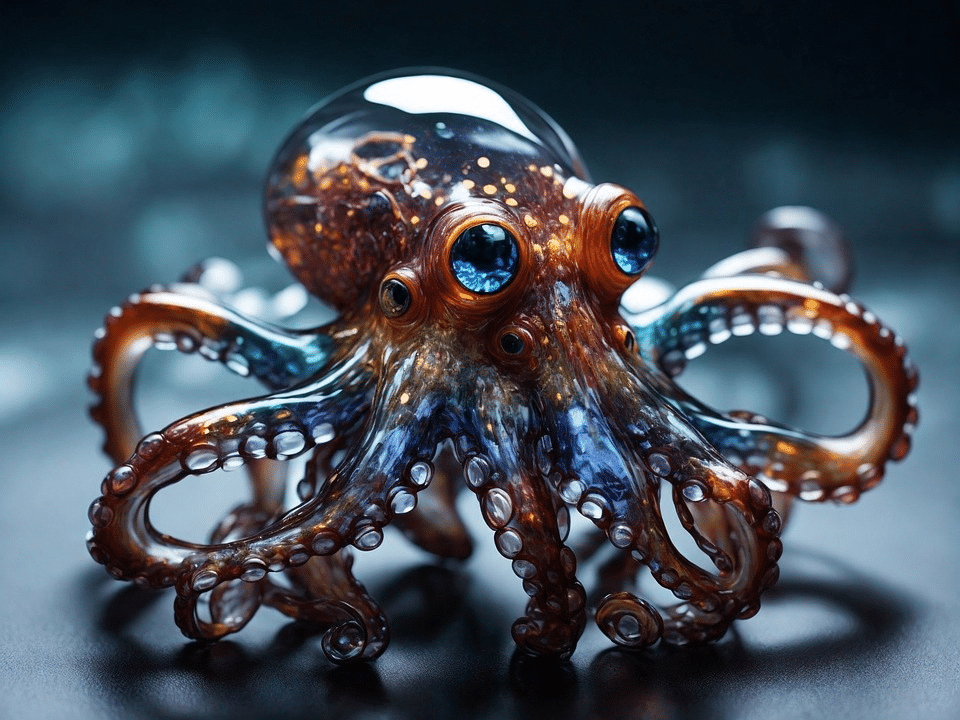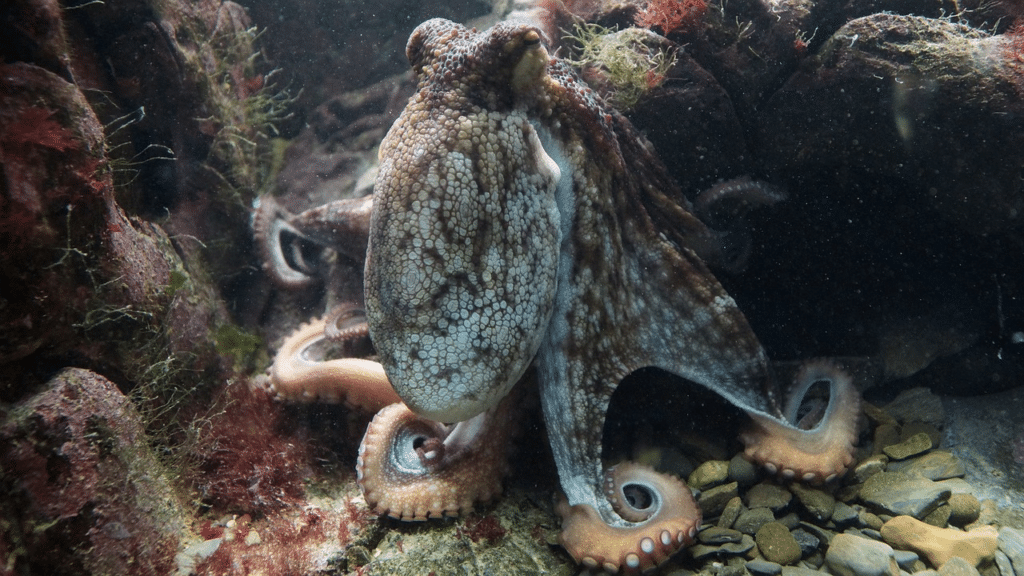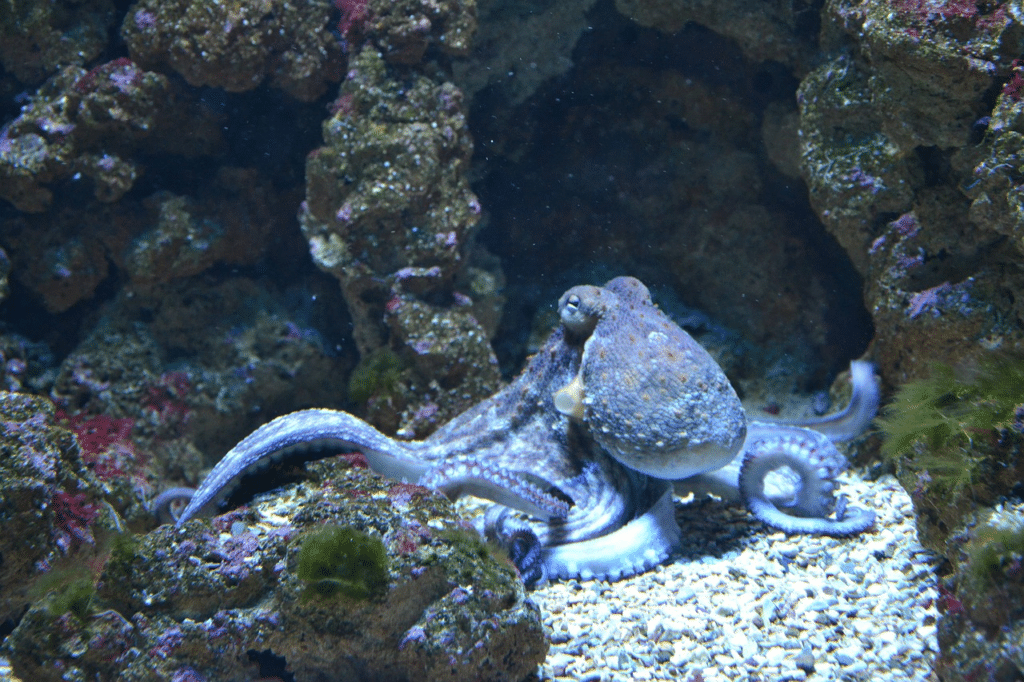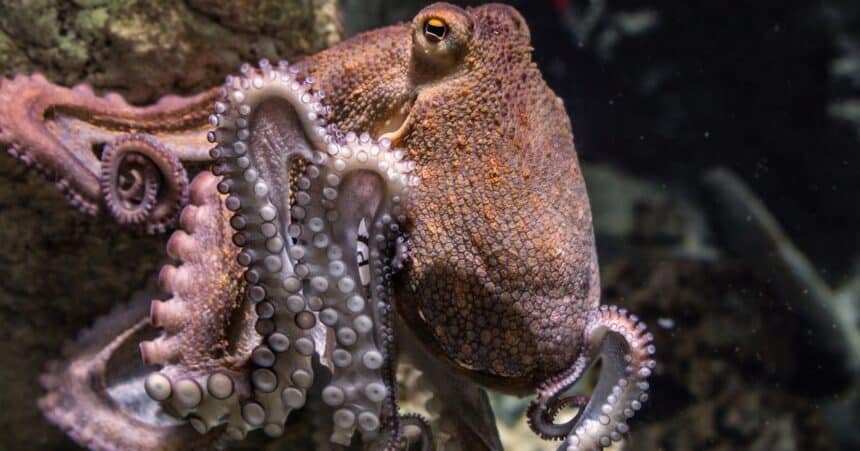When we think of intelligence, humans often come to mind as the benchmark for cognitive abilities. However, the animal kingdom presents a variety of species that exhibit impressive intelligence in their own ways. Among these creatures, the octopus stands out for its remarkable problem-solving skills, adaptability, and complex behavior. In this article, we’ll compare the “octopus IQ” to human IQ, explore the differences between the two, and examine how evolution has shaped the intelligence of octopuses.
What Is “Octopus IQ”?

While there is no standard test to measure octopus IQ in the same way we assess human IQ, octopuses demonstrate a level of intelligence that is both intriguing and impressive. They possess a highly developed nervous system, with approximately 500 million neurons, mostly distributed throughout their arms. This decentralized nervous system allows them to perform complex tasks, solve puzzles, and even exhibit behaviors that suggest learning and memory retention.
The term “octopus IQ” refers to their cognitive abilities, including problem-solving, tool use, and the ability to adapt to new environments. Although their intelligence operates differently from that of humans, it is clear that octopuses have evolved specific traits that allow them to thrive in their underwater environments.
Comparing Octopus IQ to Human IQ

Humans, on the other hand, are often regarded as the most intelligent species on Earth, primarily due to our ability to engage in abstract thinking, communicate complex ideas, and develop advanced technologies. Human IQ tests are designed to measure reasoning, logic, and problem-solving skills, and while octopuses do not engage in these activities in the same way, they exhibit forms of intelligence that are remarkable in their own right.
One of the primary differences between human IQ and octopus IQ is the way each species processes information. Humans rely on a centralized brain, which handles all cognitive tasks. In contrast, octopuses have a decentralized nervous system, with much of their “thinking” distributed throughout their eight arms. Each arm can independently explore, manipulate objects, and even make decisions, suggesting that octopus intelligence is both localized and unique.
Evolutionary Factors Influencing Octopus IQ

The evolution of octopus intelligence is a fascinating subject. Octopuses belong to a class of mollusks called cephalopods, which includes squids and cuttlefish. Over millions of years, cephalopods have evolved remarkable adaptations, with intelligence being one of their most significant traits.
Octopuses have evolved in a world filled with predators and challenges. Unlike humans, who evolved as social creatures with cooperation and communication at the core of our development, octopuses evolved as solitary creatures. Their intelligence, therefore, has been shaped by the need to solve immediate, survival-related problems. For example, octopuses are known to escape from enclosures, open jars to retrieve food, and camouflage themselves to avoid predators. These abilities are the result of evolutionary pressures that favored quick thinking, adaptability, and the ability to learn from experience.
While octopuses do not have a long lifespan (typically one to two years), they have managed to develop a high level of intelligence in a relatively short amount of time. This suggests that their intelligence is geared toward survival in a dynamic, often dangerous environment. In contrast, human evolution has favored long-term learning, social cooperation, and the ability to pass knowledge down through generations.
The Future of Octopus Intelligence

As we continue to study octopuses, it is likely that we will uncover more about their cognitive abilities and how they compare to other species, including humans. Some scientists believe that octopuses represent an entirely different path of intelligence, one that evolved separately from vertebrates and provides unique insights into the nature of cognition.
Octopuses are sometimes referred to as “alien” in their intelligence, not because they are extraterrestrial, but because their cognitive abilities are so different from our own. This makes studying octopus IQ a fascinating endeavor, as it challenges our understanding of intelligence and shows us that there are many different ways to be “smart.”
Beyond Evolution
While the “octopus IQ” may not be comparable to human IQ in terms of abstract reasoning or communication, octopuses have evolved to become one of the most intelligent invertebrates on the planet. Their ability to solve problems, use tools, and adapt to their environment demonstrates a form of intelligence that is specialized and highly effective for their survival.
Evolution has shaped the octopus’s intelligence in unique ways, giving them the ability to thrive in challenging environments. While their intelligence is different from that of humans, it is no less impressive. The more we learn about octopuses, the more we realize that intelligence comes in many forms, each adapted to the specific needs of the species that possess it.


